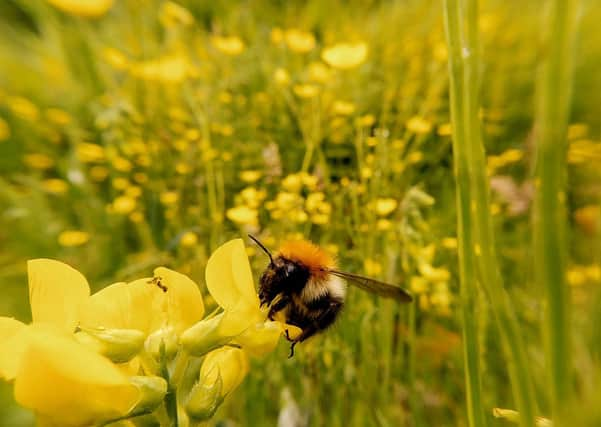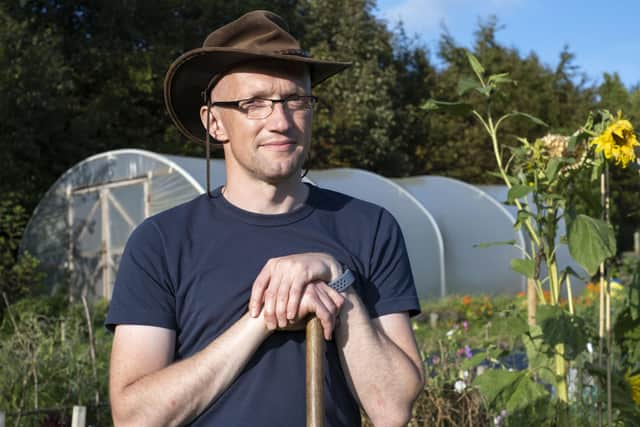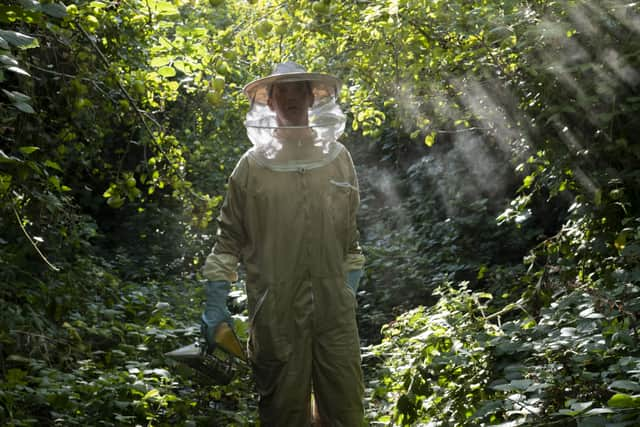All Ireland Pollinator Plan - a radical plan reversing the decline of bees and pollinators


Bees and pollinators have been declining in Ireland and other countries for decades - as a result of mono-culture, pollution, climate change and disease, and this decline comes at a huge cost to agriculture, to wildflowers and trees, and to many parts of the natural world that we take for granted.
The All Ireland Pollinator Plan (AIPP), set up in 2015, is almost unique in reversing pollinator decline by engaging with Irish society, mobilising a citizen’s army of gardeners, farmers, community and sports groups, councils and other land owners to become pollinator friendly, protecting the environment and protecting the lives of future generations.
Advertisement
Advertisement
TG4 will broadcast a documentary Plean Bee on World Bee Day, May 20th at 9.30pm in support of pollinators.


In Plean Bee Dr Úna Fitzpatrick from the National Biodiversity Data Centre, Professor Jane Stout from TCD, and Dr Pól Mac Cana from Belfast tell us of the variety of pollinators who work on our behalf, the honeybees, the bumblebees as well as Ireland’s 77 species of solitary bee - individual bees of surprising sizes and colours who are the country’s main pollinators.
While bees are responsible for most pollination, there are also wasps, moths and butterflies and hoverflies to take into account.
In Plean Bee hears how these pollinators face the same problem of decline in habitats and food sources. Gardens, parks, hedgerows and farmland that are over maintained, or are treated with pesticides, are destroying natural habitats for pollinators who require shelter, and different food sources throughout the year. The delicate balance of nature - the pollination of fruits and crops, trees and wildflowers in exchange for food and shelter - is breaking down, and pollinators are struggling to survive.
Advertisement
Advertisement
The aim of the AIPP, launched by Úna and Jane in 2015, was to encourage as much of Irish society as possible to take action to protect or develop habitats and food sources. The AIPP published action plans for every type of citizen activist, and in Plean Bee witnesses how Derry City and Strabane Council have reduced the mowing of grass over the summer, to allow wildflowers to grow to support pollinators.


The documentary visits a community glasshouse in Donegal, a school in Dublin that has implemented pollinator-friendly policies, a Mullingar farm where traditional hedge-laying helps promote biodiversity, and finally, the documentary visits Buncrana Town, where the local council, the Tidy Towns committee and others have transformed how the town plants flowers and maintains its roundabouts and parkland to the advantage of bees and pollinators. In each case the documentaru witnesses the crucial steps we can all take to help protect our environment.
The success of the pollinator plan, and the huge community buy-in involved means that other countries, and the EU in particular, are looking to Ireland for help in improving the situation of their own pollinators. The AIPP is making a difference, and as Úna Fitzpatrick states, “The beauty about it is that we’re not asking ‘anybody’ to solve this problem, we’re asking ‘everybody’ to get involved, and if everybody took small actions, then together we would solve it.”
Plean Bee was commissioned by TG4 and produced by Dearcán Media with support from the Irish Language Broadcast Fund of Northern Ireland Screen.